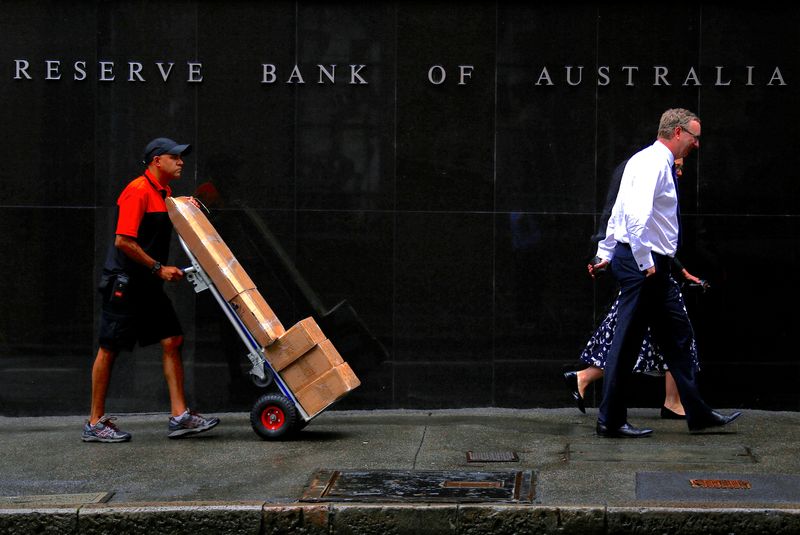SYDNEY (Reuters) – Australia’s central bank is ready to respond “with force” should potential U.S. tariffs hit global trade and threaten growth at home, a top official said on Wednesday, a day after it surprised markets by opening the door to an easing.
In a speech in Sydney, Reserve Bank of Australia (RBA) Deputy Governor Andrew Hauser said the direct impact from any U.S. tariffs on Australia is likely to be limited as the country – unlike others – runs a trade deficit with the world’s largest economy.
Much will depend on the response from China, he said, adding that policy stimulus from Australia’s largest trading partner might even lead to an increase in activity at home.
But the deputy governor warned the most extreme scenario of an all-out global trade war would depress global activity and trade.
“As with every element of monetary policy setting, we will be alert to developments and ready to respond – in either direction, with force if needed, to deliver our mandate of low and stable inflation with sustained full employment.”
The RBA, which has bucked the global easing trend by holding interest rates steady at 4.35% for over a year, unexpectedly turned dovish on Tuesday, prompting markets to ramp up bets for an easing in February as economic growth has stayed surprisingly weak.
Hauser said the impact from U.S. tariffs on inflation in Australia is “ambiguous” and could move in either direction.

“The chances of being propelled into another global depression are low,” he said.
“We have strong comparative advantages in raw materials and services that other countries need… We have a track record of nimbly reshaping our trading relationships… And our flexible exchange rate and independent monetary policy can serve as powerful shock-absorbers.”



